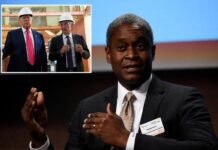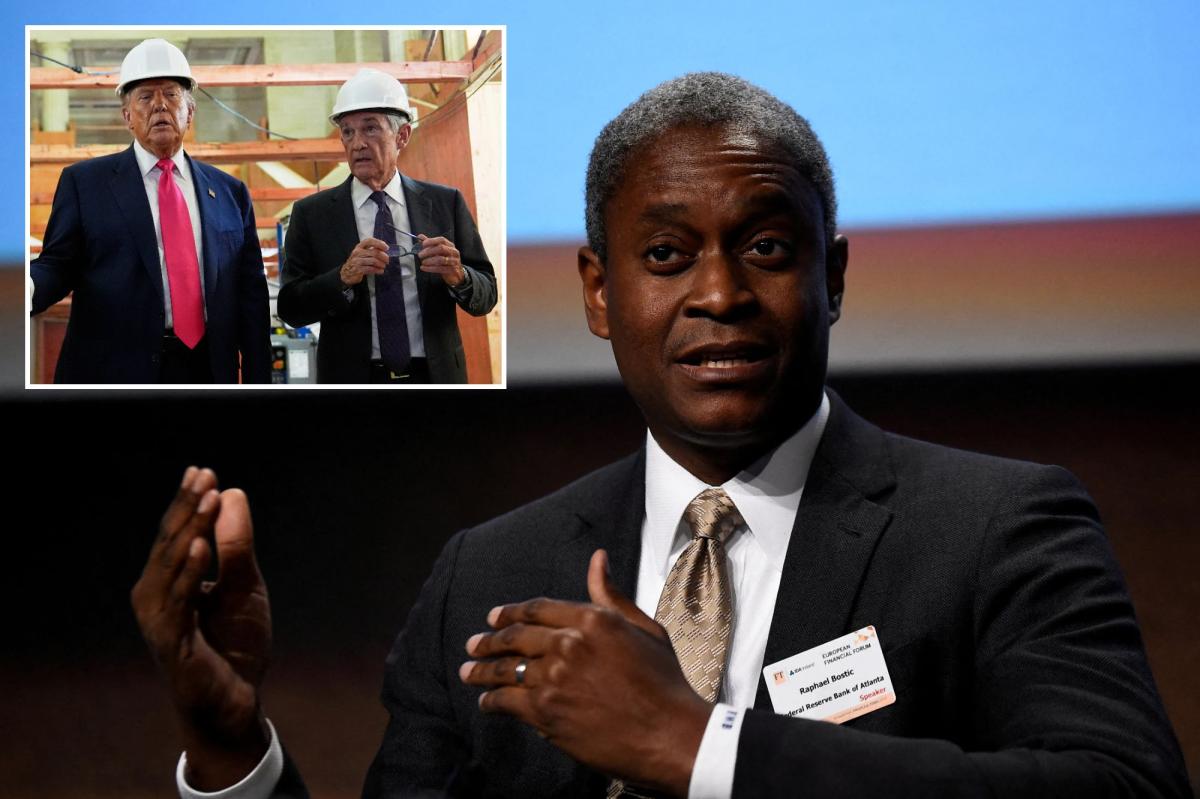
Kyiv, Ukraine – Pro-Moscow sympathies, corruption and multimillion-dollar embezzlement, reported ties to Ukrainian, Greek and Italian mobsters and the orchestration of assaults on almost a dozen anticorruption whistleblowers.
That is just an abridged list of the accusations Gennadiy Trukhanov has faced since 2014, when he was elected mayor of Odesa, the nation’s third-largest city and home to its largest seaport and the naval headquarters.
Recommended Stories
list of 4 itemsend of list
The 60-year-old former military officer and martial arts enthusiast has faced corruption-related arrests in 2018 and investigations in 2023. The latest case involves an “illegal takeover” of government-owned land for real estate development that cost $16.5m, according to Ukraine’s anticorruption prosecutors.
Russian or not?
On October 14, the political drama intensified.
President Volodymyr Zelenskyy decided to strip Trukhanov of Ukrainian citizenship after a scan of the mayor’s allegedly Russian passport was published by Ukrainian intelligence.
Trukhanov denied having Russian citizenship, although a Panama Papers leak years ago appeared to show that he had one – and used it to register offshore companies.
Two days after losing his Ukrainian citizenship, Trukhanov was fired as part of what some observers call a turf war between central and regional authorities caused by the provisions of martial law, conflicting jurisdictions and Kyiv’s push to rein in unruly politicians in front-line regions.
“Trukhanov has long had a serious conflict with political and ideological opponents; they considered him ideologically dangerous and warred with him for years,” Volodymyr Fesenko, head of the Kyiv-based Penta think tank, told Al Jazeera.
Advertisement
Russia has not commented on the incident.
At the time of publishing, Trukhanov had not responded to Al Jazeera’s request for comment.
During a news conference on October 15, he said he never held a Russian passport.
“It’s a moral execution. They just executed me,” he told the journalists.
He is under house arrest and is fighting to restore his citizenship.
On Wednesday, another row with a top official rocked Ukraine as Zelenskyy suspended Herman Haluschenko as justice minister for his presumed involvement in a corruption scandal in the energy industry.
The scandal involved Zelenskyy’s former business partner, who is said to have profited from kickbacks paid by companies that wanted contracts with Energoatom, the state-run monopoly that manages all of Ukraine’s nuclear power stations, according to anticorruption prosecutors and media reports.
Attacks on anticorruption activists
Russian President Vladimir Putin has long wanted to seize Odesa, one of the Soviet era’s most cosmopolitan hubs. It is known as a writer’s city, has a literary museum and is famed for music and an absurdist sense of humour that helps Ukrainians cope with the war.
In 2014, a Moscow-backed separatist uprising threatened the city as clashes killed about 50 people. In 2022, Russian troops tried to take over the city of one million. Today, lethal missiles and drones bring terror to Odesa as the war rages on, while the port’s operations are regularly disrupted.
After the 2014 annexation of Crimea and the 2022 occupation of Ukraine’s ports on the Sea of Azov, the city became a lifeline maritime export route for Ukraine’s grain and steel.
Trukhanov stayed on as mayor after Zelenskyy came to power on an anticorruption ticket in 2019.
Activists in Odesa have claimed Trukhanov allowed corruption and crime to prevail in the years before Zelenskyy’s presidency began.
In 2018, Transparency International Ukraine listed a dozen attacks on activists and “politically exposed persons” in the city as it published a letter signed by civil society representatives calling for action.
In 2019, anticorruption activist Mykhailo Kuzakon told Al Jazeera, “It was Trukhanov’s goons”, as he described how a truck allegedly sped up to run him over near his house in Odesa. He survived the incident, which took place a year earlier, but his colleague’s car was destroyed. During the interview, Kuzakon, the head of the Narodny Rukh (People’s Movement) anticorruption organisation, was wearing a bulletproof vest and had two government-provided bodyguards next to him.
Advertisement
Investigations into the attack on him and other activists did not conclude that Trukhanov was involved after key witnesses refused to testify and evidence went missing.
An excuse for sacking?
Kyiv had been afraid of possible protest rallies that could follow Trukhanov’s sacking, according to Nikolay Mitrokhin, a researcher with Germany’s Bremen University, until a tragic calamity provided a useful excuse.
On October 1, torrential rains flooded Odesa, damaging hundreds of buildings and killing 11, including a child. Critics said the disaster highlighted the Trukhanov administration’s failure to build an effective drainage system despite perennial warnings.
And for the rest of Ukraine, Zelenskyy’s administration “reanimated the story with [Trukhanov’s Russian] passport that is 15 years old and that didn’t stop [the mayor] from effectively managing Odesa during the three-and-a-half years of war,” Mitrokhin told Al Jazeera.
Some Odesans agree.
“Everybody has known for years that Trukhanov had a Russian passport. Everybody has known about his ties to the mob and his hand in every pie,” Oleh, a 43-year-old Odesa native who withheld his last name as he fears for his safety, told Al Jazeera. “He was sacked because only now Zelenskyy is strong enough to get him out of the game.”
In 1998, Italian police described Trukhanov as part of a mafia group suspected of extortion and arms trafficking. Their report said Trukhanov used a Greek passport and was responsible for training gang members in hand-to-hand combat and sniper shooting.
Trukhanov denied the claims but admitted friendship with the people identified as the gang’s leaders.
Others have mixed feelings about Trukhanov’s legacy, crediting him with defending Odesa from Russian forces, but also snubbing the historic centre of the city, founded in 1794.
“Odesa is dirty and shabby. He didn’t take good care of it; [historic] buildings need renovation, trees need a trim,” office manager Zynaida, who moved to Odesa from central Ukraine, told Al Jazeera. She withheld her last name for safety reasons.
Trukhanov will not be replaced by an elected mayor. His 70-year-old deputy, former university professor Ihor Koval, is now acting mayor. Zelenskyy has appointed General Serhiy Lysak as head of Odesa’s military administration.
Lysak is connected to Zelenskyy’s political clan, which mostly consists of figures from the cities of Dnipro and Kryvyi Rih. The group had already tried to gain a foothold in Odesa in 2014, said analyst Mitrokhin.
Ex-boxer boxed in
Trukhanov’s dismissal followed Zelenskyy’s pressure on other powerful heavyweights, including a literal one.
Vitali Klitschko, a former heavyweight boxing champion and mayor of Kyiv since 2014, has been embroiled in a power struggle with Zelenskyy for years.
Klitschko disliked Zelenskyy long before the president – a popular comedian, actor and producer – became a politician.
Zelenskyy’s District 95 comic troupe mocked Klitschko, portraying him in their routines as incoherent.
In real life, Klitschko was a close ally of Zelenskyy’s presidential predecessor and main rival, Petro Poroshenko.
Advertisement
In 2023, Zelenskyy accused Klitschko of failing safety measures after a missile attack killed a nine-year-old girl, her mother and their neighbour as they tried to enter a closed-down bomb shelter.
Their feud grew after Zelenskyy’s appointment of “martial law chief” Tymur Tkachenko as head of Kyiv’s military administration in late 2023.
Tkachenko took over some administrative responsibilities, but critics doubted the necessity of such a figure in the city that sits hundreds of kilometres from the front line. When Russia began its full-scale invasion in February 2022, Russian forces failed to seize Kyiv and withdrew from the region.
The Klitschko and Trukhanov rows could manifest Zelenskyy’s push to quell political opposition “at least” in Ukraine’s south and centre.
“That’s where he sees his electoral base,” analyst Mitrokhin told Al Jazeera.
He predicted that Andriy Sadovyi, the mayor of Lviv in western Ukraine and another notable critic of Zelenskyy, could be sidelined as the region voted against Zelenskyy in the 2019 vote.
Disclaimer : This story is auto aggregated by a computer programme and has not been created or edited by DOWNTHENEWS. Publisher: aljazeera.com







